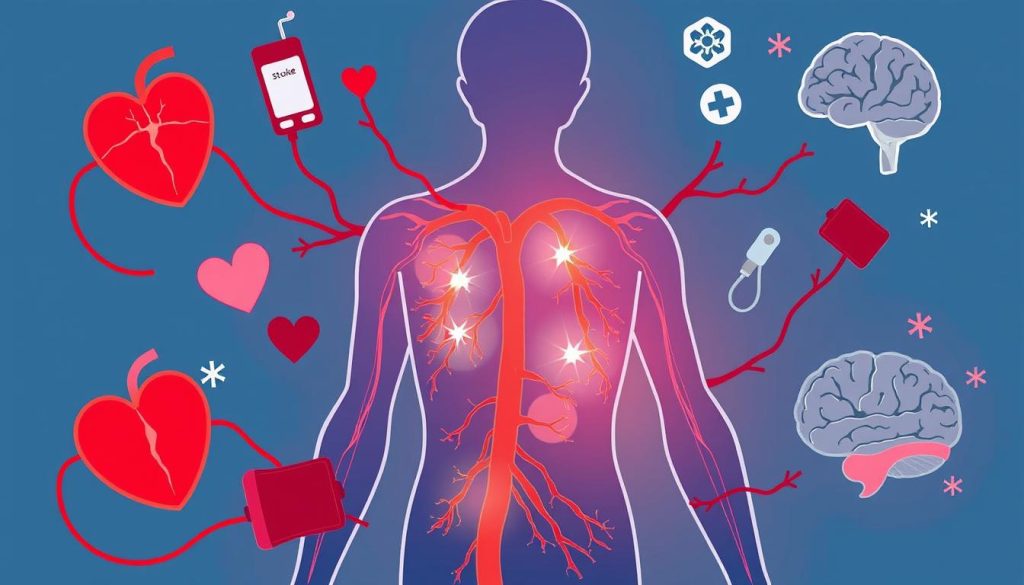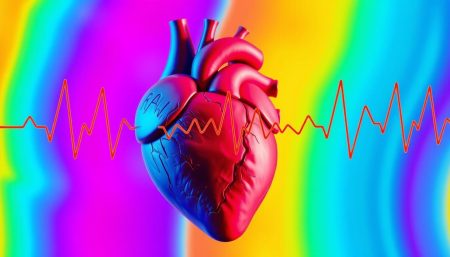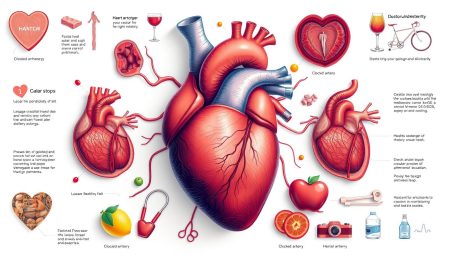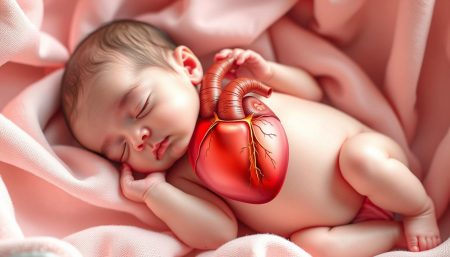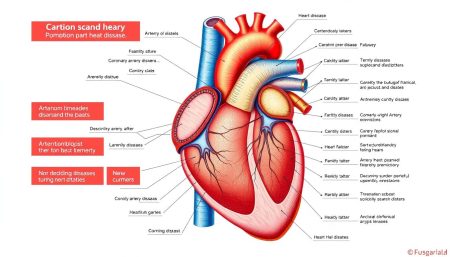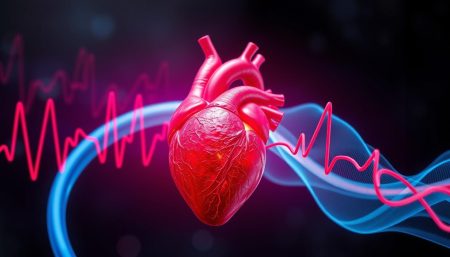Many people ask if stroke is linked to cardiovascular diseases. This guide explores the connection between stroke and vascular health. It sheds light on a key part of our well-being.
Strokes happen when blood flow to the brain stops. This can lead to serious consequences. But is a stroke really a heart disease? The answer might surprise you.
By looking into this connection, we learn more about heart and brain health. This knowledge helps us protect ourselves and our loved ones from these dangers.
Understanding the Connection Between Stroke and Cardiovascular Disease
Stroke and cardiovascular disease are closely linked. They share many risk factors and underlying mechanisms. This shows how important vascular health is in preventing brain injury and keeping us well.
The Cardiovascular System’s Role in Stroke
The heart and blood vessels are key in stroke occurrence. A blockage or bleeding in the brain can disrupt blood flow. This is directly tied to cardiovascular health.
How Blood Flow Affects Brain Function
Proper blood flow is vital for brain function. The brain needs a steady supply of oxygen and nutrients. Without it, brain cells can die quickly, leading to brain injury or death.
Key Differences and Similarities
Stroke is mainly a brain event, but it shares traits with other cardiovascular diseases. Both involve blood vessel and circulation problems. The main difference is where they affect – stroke hits the brain, while heart disease affects the heart or other areas.
| Aspect | Stroke | Heart Disease |
|---|---|---|
| Affected Organ | Brain | Heart |
| Cause | Blocked or ruptured blood vessels in brain | Blocked or narrowed coronary arteries |
| Risk Factors | High blood pressure, smoking, diabetes | High blood pressure, smoking, diabetes |
Understanding the link between stroke and cardiovascular disease highlights the need for good vascular health. This is key to preventing both conditions effectively.
Is Stroke a Cardiovascular Disease: Defining the Relationship
Stroke and cardiovascular diseases are closely linked, affecting our vascular health. Medical experts classify stroke as a cardiovascular disease. This is because it directly involves the heart and blood vessels.
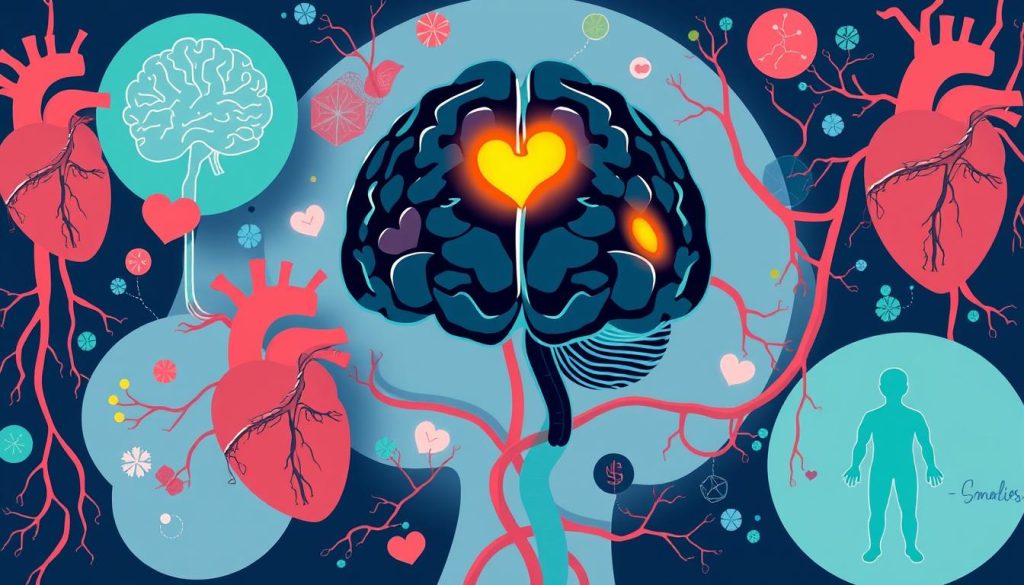
The American Heart Association sees stroke as a cardiovascular disease. It points out how it impacts our circulatory system. Issues with blood vessels in the brain cause stroke, making it key to cardiovascular health.
Knowing this connection is vital for prevention and treatment. By tackling cardiovascular risk factors, we can lower the risk of heart disease and stroke.
“Stroke is a cardiovascular disease affecting the arteries leading to and within the brain,” states the National Stroke Association.
Here are the main points that show stroke is a cardiovascular disease:
- Affects blood vessels in the brain
- Shares risk factors with heart disease
- Impacts overall circulatory system
- Requires similar prevention strategies
| Aspect | Stroke | Other Cardiovascular Diseases |
|---|---|---|
| Primary Organ Affected | Brain | Heart |
| Vascular Involvement | Brain blood vessels | Coronary arteries |
| Risk Factors | High blood pressure, smoking, diabetes | High blood pressure, smoking, high cholesterol |
| Prevention Strategies | Healthy diet, exercise, blood pressure control | Healthy diet, exercise, cholesterol management |
Seeing stroke as a cardiovascular disease highlights the need for good vascular health. This understanding helps doctors create better ways to prevent and treat stroke and heart conditions.
Types of Stroke and Their Cardiovascular Origins
Strokes are different, each with its own heart-related cause. Knowing these types helps us spot risks and prevent brain damage. Let’s look at the main stroke categories and how they affect our brains.
Ischemic Stroke: Blocked Blood Vessels
An ischemic stroke happens when blood can’t reach the brain. This lack of oxygen kills brain cells fast. High blood pressure, smoking, and diabetes are big risks.
Hemorrhagic Stroke: Ruptured Blood Vessels
Hemorrhagic strokes occur when a brain blood vessel bursts. This bleeding harms brain tissue. High blood pressure is a big risk factor.
Transient Ischemic Attack (TIA)
A TIA, or “mini-stroke,” is a short blockage of brain blood flow. It doesn’t cause lasting brain damage but is a warning. People who have a TIA are more likely to have a real stroke.
| Stroke Type | Cause | Main Risk Factors |
|---|---|---|
| Ischemic | Blocked blood vessel | High blood pressure, diabetes, smoking |
| Hemorrhagic | Ruptured blood vessel | High blood pressure, brain aneurysms |
| TIA | Temporary blockage | Similar to ischemic stroke |
It’s key to know about these stroke types and their heart-related causes. By tackling risk factors and keeping our hearts healthy, we can lower our stroke risk.
Common Risk Factors for Stroke and Heart Disease
Stroke and heart disease have many risk factors in common. Knowing these risks is key to preventing them.
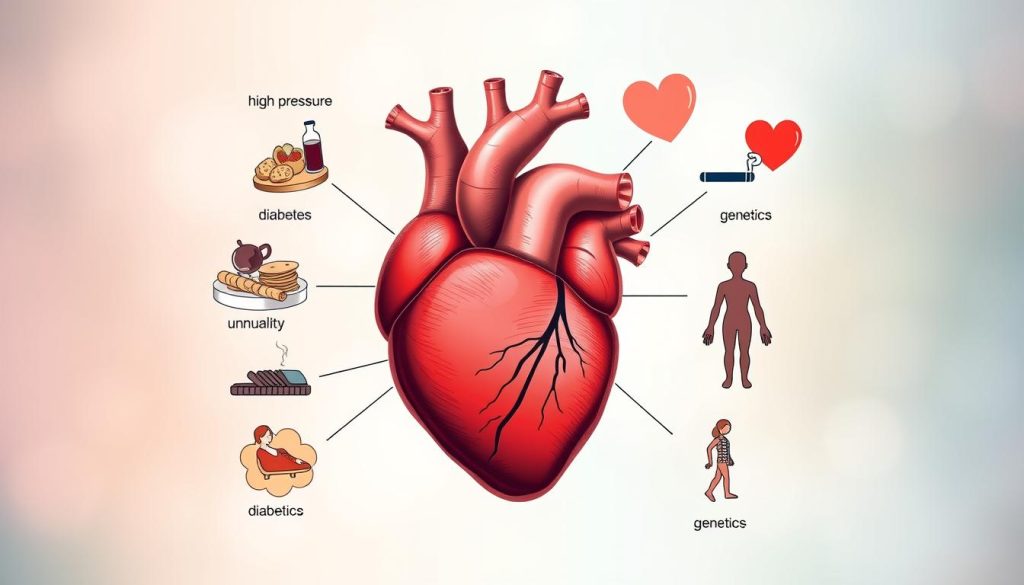
Your lifestyle choices greatly affect your risk. Smoking, not moving enough, and eating poorly can harm your heart. Medical issues like high blood pressure, diabetes, and high cholesterol also raise your risk.
Genetics can make you more likely to get these diseases. If your family has a history, watch your risk factors closely.
“Prevention is better than cure. By addressing risk factors early, we can significantly reduce the chances of stroke and heart disease.”
Here’s a list of common risk factors and how they affect your heart:
| Risk Factor | Impact on Cardiovascular Health | Prevention Strategies |
|---|---|---|
| High Blood Pressure | Damages arteries, increases stroke risk | Regular exercise, low-sodium diet |
| Smoking | Narrows blood vessels, promotes clot formation | Quit smoking, avoid secondhand smoke |
| Obesity | Strains heart, raises blood pressure | Balanced diet, portion control |
| Physical Inactivity | Weakens heart muscle, increases cholesterol | Regular aerobic exercise, active lifestyle |
By changing your lifestyle and getting medical help, you can lower your risk. Regular doctor visits and talking to your doctor are important for prevention.
The Impact of High Blood Pressure on Stroke Risk
High blood pressure is a big risk for stroke. Knowing how it affects blood vessels is key to preventing strokes.
Understanding Blood Pressure Readings
Blood pressure has two numbers. The top number shows pressure when the heart beats. The bottom number shows pressure between beats.
| Category | Systolic (mm Hg) | Diastolic (mm Hg) |
|---|---|---|
| Normal | Less than 120 | Less than 80 |
| Elevated | 120-129 | Less than 80 |
| Stage 1 Hypertension | 130-139 | 80-89 |
| Stage 2 Hypertension | 140 or higher | 90 or higher |
Hypertension Management Strategies
Managing high blood pressure is vital to lower stroke risk. Regular checks, sticking to medication, and lifestyle changes are essential.

Lifestyle Modifications for Blood Pressure Control
Healthy habits can greatly improve blood vessel health and lower blood pressure. Here are some changes to consider:
- Maintain a healthy weight
- Exercise regularly
- Reduce sodium intake
- Limit alcohol consumption
- Manage stress
By making these changes, you can control your blood pressure and lower your stroke risk. Small steps can make a big difference in your vascular health.
Prevention Strategies for Cardiovascular Health and Stroke
Controlling your vascular health is essential to lower stroke risk. By using smart prevention strategies, you can greatly improve your heart and brain health. Let’s look at some effective ways to protect your heart and brain.

Eating a heart-healthy diet is a key part of stroke prevention. Eat lots of colorful fruits, vegetables, whole grains, and lean proteins. These foods are full of nutrients that help your blood vessels stay healthy and manage risks like high blood pressure and cholesterol.
Regular exercise is also very important. Try to do at least 150 minutes of moderate activity each week. Activities like brisk walking, swimming, or cycling are great. They make your heart stronger, improve blood flow, and help you stay at a healthy weight.
Managing stress is also key for your heart health. Try relaxation techniques like deep breathing, meditation, or yoga. These can help lower your blood pressure and reduce stress’s impact on your body.
Quitting smoking is a huge step you can take. Smoking damages your blood vessels and raises the risk of blood clots. If you smoke, getting help to quit can greatly improve your vascular health.
| Risk Factor | Prevention Strategy |
|---|---|
| High Blood Pressure | Monitor regularly, limit salt intake, exercise |
| High Cholesterol | Eat heart-healthy fats, increase fiber intake |
| Obesity | Maintain a healthy weight, portion control |
| Diabetes | Manage blood sugar, follow a balanced diet |
By using these prevention strategies, you can make big steps towards better vascular health and lower stroke risk. Remember, even small changes can make a big difference in your overall health.
Early Warning Signs and Symptoms of Stroke
Spotting stroke symptoms early is key to better treatment. Stroke causes sudden brain injury, and acting fast is vital. Let’s look at important warning signs and when to get help.
FAST Method for Stroke Recognition
The FAST method helps identify common stroke symptoms:
- Face: Ask the person to smile. Does one side droop?
- Arms: Can they raise both arms equally?
- Speech: Is their speech slurred or strange?
- Time: If you notice these signs, call 911 right away!
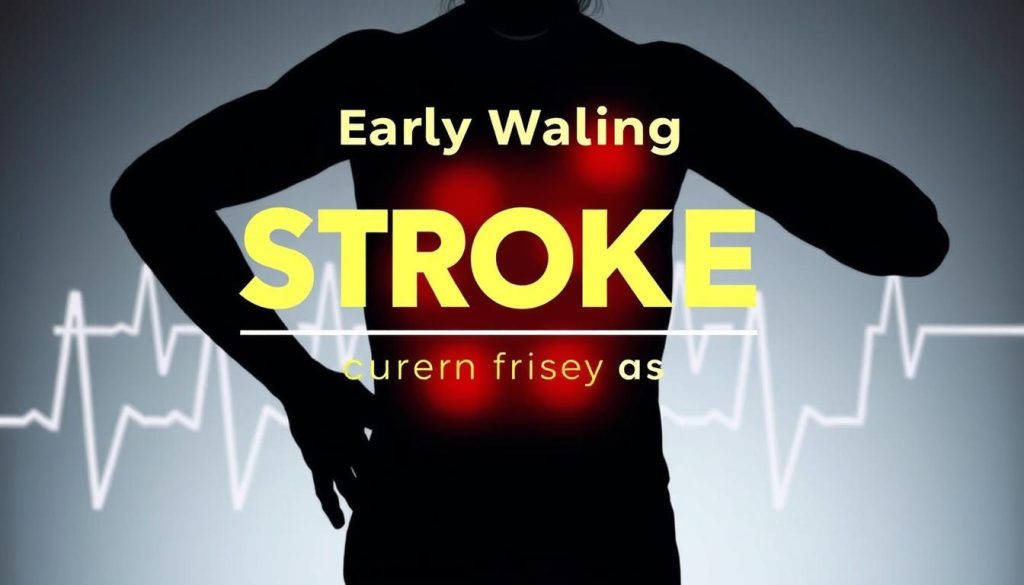
Lesser-Known Stroke Symptoms
Some stroke signs are not as well-known but are just as serious:
- Sudden severe headache
- Trouble seeing in one or both eyes
- Sudden confusion or trouble understanding
- Dizziness, loss of balance, or trouble walking
When to Seek Emergency Care
If you see any stroke symptoms, don’t hesitate. Call 911 immediately. Every minute is critical for stroke treatment. Quick action can reduce brain injury and improve recovery chances. Always err on the side of caution with stroke.
Treatment Approaches for Stroke Patients
When a stroke happens, acting fast is key. Doctors use many treatments to lessen brain damage and help recovery. The choice depends on the stroke’s type and how severe it is.
For ischemic strokes, doctors often start with clot-busting drugs like tPA. These drugs work best if given within hours of the first symptoms. Sometimes, a catheter is used to remove the clot from the brain.
Hemorrhagic strokes need different treatments. Surgeons might do procedures to stop the bleeding and ease brain pressure. This could mean fixing a ruptured blood vessel or removing extra fluid.
After the initial treatment, rehab is very important. Proper rehabilitation helps patients get back lost skills and adjust to any lasting effects. This includes:
- Physical therapy to improve mobility and strength
- Occupational therapy for daily living skills
- Speech therapy to address language and swallowing issues
The path to recovery is long, but with the right care, many stroke survivors make big strides. Each person’s recovery is different, and treatment plans are made just for them.
Rehabilitation and Recovery After Stroke
Stroke survivors face a tough journey to regain lost abilities. Rehabilitation is key, bringing hope and support through various treatments. The path to recovery includes therapies tailored to each patient’s brain injury.
Physical Therapy Options
Physical therapy is at the heart of stroke rehab. It aims to restore movement and strength in affected limbs. Exercises might include:
- Gait training to improve walking
- Balance exercises to prevent falls
- Strength training for weakened muscles
Therapists use special equipment and techniques to help patients become independent again.
Speech and Occupational Therapy
Many stroke survivors struggle with communication and daily tasks. Speech therapy helps with language issues, while occupational therapy focuses on everyday skills. These therapies work together to enhance quality of life.
| Therapy Type | Focus Areas | Benefits |
|---|---|---|
| Speech Therapy | Language, swallowing | Improved communication, safer eating |
| Occupational Therapy | Daily living skills | Increased independence, adaptability |
Long-term Recovery Goals
Setting realistic goals is vital for long-term stroke recovery. Goals might include:
- Regaining independence in personal care
- Returning to work or finding new employment
- Participating in community activities
Rehabilitation teams work closely with patients to adjust goals as progress is made. This ensures a personalized approach to recovery from brain injury.
Latest Research and Advances in Stroke Treatment
The field of stroke care is changing fast. Researchers are working hard to find new ways to treat cardiovascular diseases. They are looking into new therapies and tools to help manage strokes better.
One area getting a lot of attention is targeted drug delivery. This method aims to send medicines straight to the brain areas affected by a stroke. It could make treatments more effective and reduce side effects. Scientists are using tiny particles to carry these drugs, which might change how we treat strokes.
Regenerative medicine is another exciting field. It involves using stem cells to fix damaged brain areas after a stroke. This is a new hope for people who don’t recover well. Researchers are also working on better imaging to find and treat the brain areas that can be saved.
Understanding strokes and heart diseases better is helping us prevent them too. New markers are being found to predict who might have a stroke. This means we can start treatments earlier to keep the heart and blood vessels healthy. These advances are making the future of stroke care look very promising.
FAQ
Q: Is stroke considered a cardiovascular disease?
A: Yes, stroke is a cardiovascular disease. It affects the heart and blood vessels, impacting the brain’s blood supply. It shares risk factors and mechanisms with other heart conditions, showing how vascular health is connected throughout the body.
Q: What are the main types of stroke?
A: There are three main types of stroke:
1. Ischemic stroke: Caused by a blockage in a blood vessel supplying the brain.
2. Hemorrhagic stroke: Occurs when a blood vessel in the brain ruptures.
3. Transient Ischemic Attack (TIA): Often called a “mini-stroke,” it’s a temporary blockage of blood flow to the brain.
Q: What are the common risk factors for stroke and heart disease?
A: Common risk factors include:
– High blood pressure
– High cholesterol
– Smoking
– Obesity
– Diabetes
– Physical inactivity
– Unhealthy diet
– Excessive alcohol consumption
– Family history of cardiovascular disease
Understanding these shared risk factors is key to preventing both stroke and heart disease.
Q: How does high blood pressure increase stroke risk?
A: High blood pressure damages and weakens blood vessels over time. This can cause blockages or ruptures in brain arteries, leading to strokes. Managing blood pressure is a critical strategy in preventing strokes.
Q: What is the FAST method for recognizing stroke symptoms?
A: The FAST method helps identify common stroke symptoms:
– F: Face drooping
– A: Arm weakness
– S: Speech difficulty
– T: Time to call emergency services
If you see these signs, call for help right away. Quick action can greatly improve outcomes.
Q: What are some effective prevention strategies for stroke?
A: Effective prevention strategies include:
– Eating a healthy diet
– Regular exercise
– Managing stress
– Quitting smoking and limiting alcohol
– Controlling blood pressure, cholesterol, and diabetes
– Regular health check-ups
These strategies reduce stroke risk and improve heart health.
Q: What treatment options are available for stroke patients?
A: Treatment options vary by stroke type and severity. They include:
– Clot-busting medications for ischemic strokes
– Surgical interventions for clots or ruptured blood vessels
– Rehabilitation therapies
– Medications to prevent future strokes
– Lifestyle changes to address risk factors
Timely treatment is key to minimizing brain damage and improving recovery.
Q: How long does stroke rehabilitation typically last?
A: Rehabilitation duration varies by stroke severity and individual factors. Significant improvements often happen in the first few months. But, rehabilitation can last years. Ongoing support and therapy can lead to continued improvements in function and quality of life.
Q: Are there any new advancements in stroke treatment?
A: Yes, there are exciting advancements in stroke treatment. These include:
– Improved imaging techniques for faster diagnosis
– Advanced clot retrieval devices
– Stem cell therapies for brain repair
– Brain-computer interfaces for rehabilitation
– Personalized medicine approaches
These innovations offer hope for better outcomes and more targeted treatments in the future.












